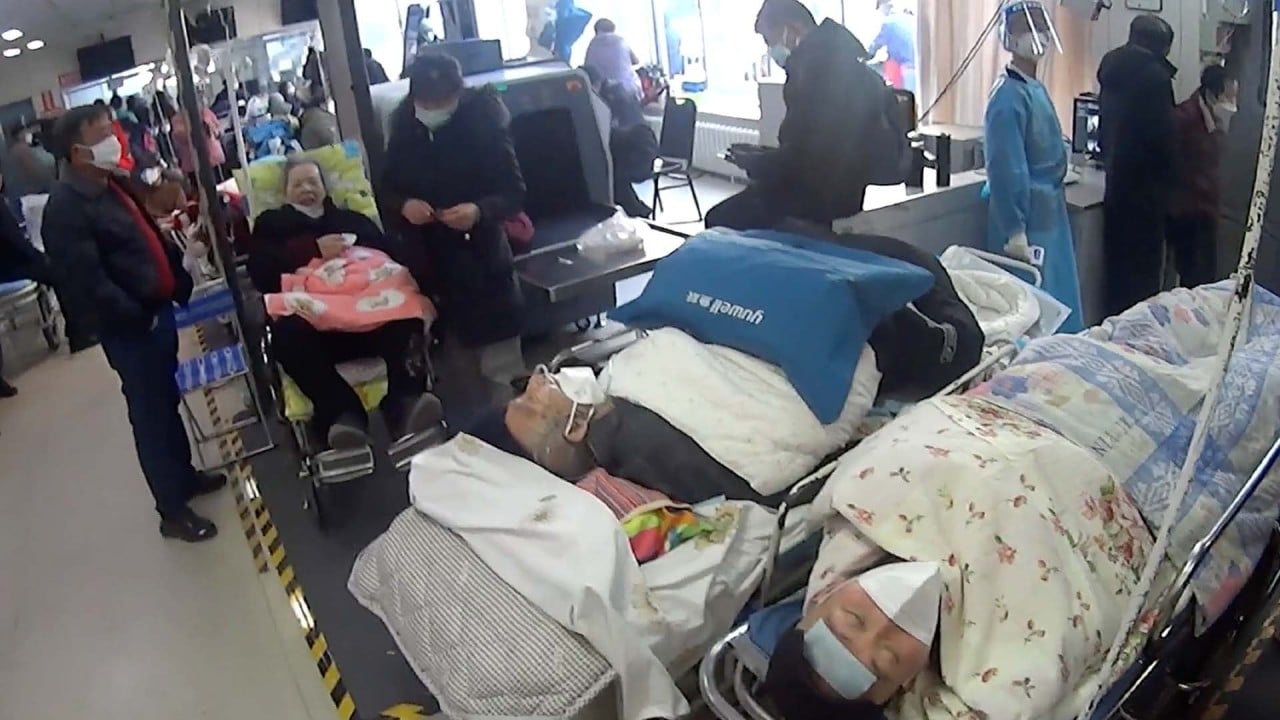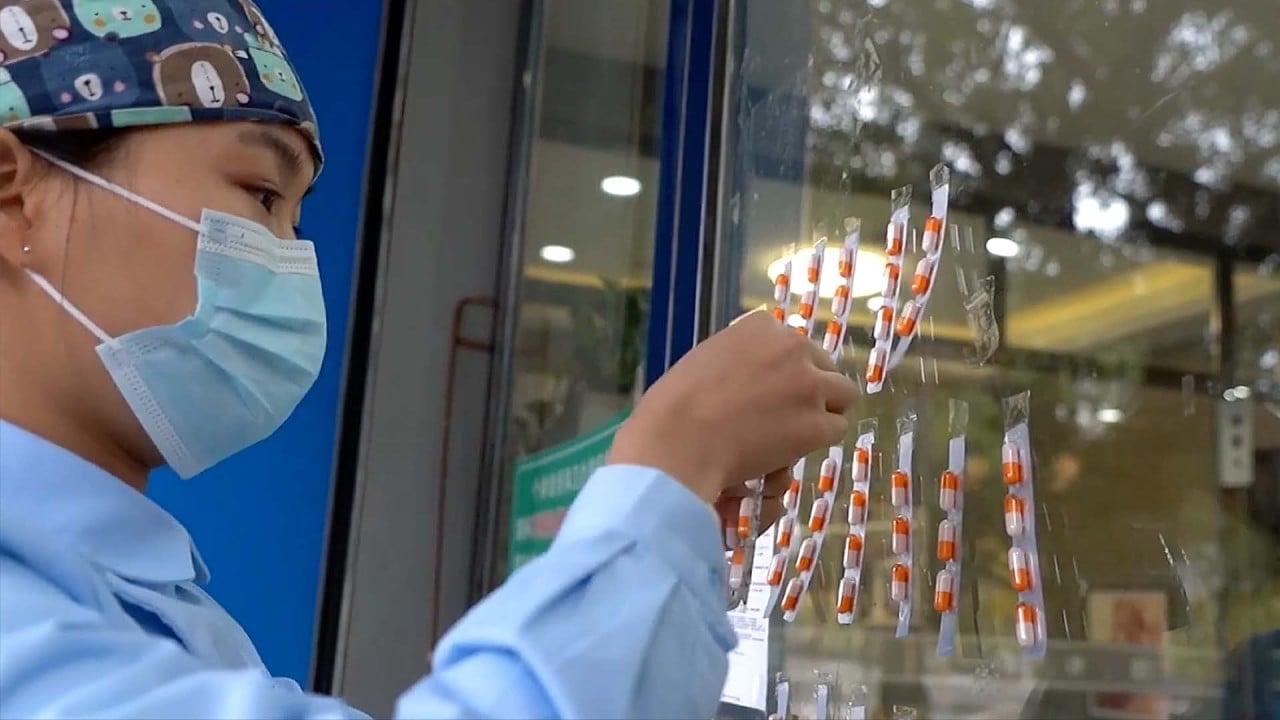
Amid China’s coronavirus crisis, Beijing draws doctors and staff from provinces to ease overwhelmed hospitals
- Hundreds of doctors and nurses from eastern provinces called to duty in capital while their own hospitals also struggle to cope with surge in cases
- Public scepticism over China’s official virus death toll; high-profile deaths include renowned designer, former footballer and opera singer
China has sent hundreds of healthcare workers, some specialising in critical care, to the capital Beijing to ease the burden at heavily strained hospitals amid a tsunami of infections.
Medical teams have been sent to Beijing before but only to help with PCR testing when zero-Covid was the national response.
A general office employee at the Second Hospital of Shandong University, who was not authorised to speak to the media and wished to remain anonymous, said the hospital sent a team out several days ago at the request of the provincial health authority and had not been told when they would return.
The hospital faced a staff shortage, with some doctors receiving patients while they themselves had tested positive because “it was their responsibility and they had no other choice”, the hospital worker said.
A doctor from the Nanjing Drum Tower Hospital confirmed a document seen by the South China Morning Post that asked seven hospitals in the city to send a total of 54 medical staff, including intensive care doctors, nurses and PCR technicians.
There were now 27 staff preparing to take the trip, the doctor said.
“We managed to send two doctors, one from the neurosurgery department and one from the dialysis department,” he said.
Previously, leaked documents from Shandong and Hunan provinces showed they were asked by the State Council to send healthcare workers, including 178 critical care specialists from Hunan, to support Beijing.
“The trip should not be publicly advertised,” one document said.
The local hospitals being asked to send help are already under stress because most of their own staff have also been infected, and some are barely able to function, the Post has learned.
Another doctor in Nanjing told the Post severe understaffing was a problem. Her hospital sent a message to doctors describing a system paralysis and calling on departments to ensure adequate staffing in the emergency room, ICU, fever clinic and maternity ward first to ensure hospital operations did not collapse.
China to track Covid-19 mutations through national hospital network
Doctors and the public have provided a different picture amid criticism the government was ill-prepared and should have anticipated that relaxing the zero-Covid rules would lead to mass infection.
A department head in a top-tier hospital in Beijing who declined to be named because of the sensitivity of the matter said he conservatively estimated that 70 per cent of the healthcare workers and help from Shandong were helping out in the emergency and outpatient departments.
He had cancelled surgeries and outpatients for the past three weeks first because he was infected and then because of the lack of staff. But there remained an influx of patients who needed care and the hospital could not cope.
“No matter how renowned the hospitals are, they can’t meet the demand,” the doctor said.
A Beijing man surnamed Li said he saw two elderly people die when he took his grandfather to the fever clinic in Chaoyang Hospital for treatment this week.
“All of a sudden, a nurse shouted that a woman who was sitting in a wheelchair hadn’t moved for a while,” he said. “They gave her a shot of adrenaline, and after a while, when they were ready to give her another shot, a doctor said ‘It’s no use’ – it was already too late.”
Another Beijing resident who presented to the emergency room at Tsinghua Changgung Hospital on Wednesday night said she saw several elderly people with blood oxygen levels around 80 per cent, which is considered low and may compromise organ function, such as the brain and heart.
However, the witness said, there were no oxygen beds available and the nurse asked patients whether they really wanted to stay at the hospital, and all the while the phone at the front desk kept ringing.
China must import mRNA vaccines to stop Covid-19 ‘disaster’: US health experts
There has been a raft of deaths of well-known figures in the city. Wang Ruoji, a former football player who spent five seasons with Shenyang Jinde team, died aged 37 of diabetes complications caused by a Covid-19 infection and famous opera singer Chu Lanlan, 40, died after contracting the virus.
A recent study by the University of Hong Kong predicts there will be 1 million deaths if the mainland reopens without plans for a comprehensive fourth-dose vaccination scheme, sufficient antiviral drugs and social-distancing measures.

.jpg?itok=H5_PTCSf&v=1700020945)



